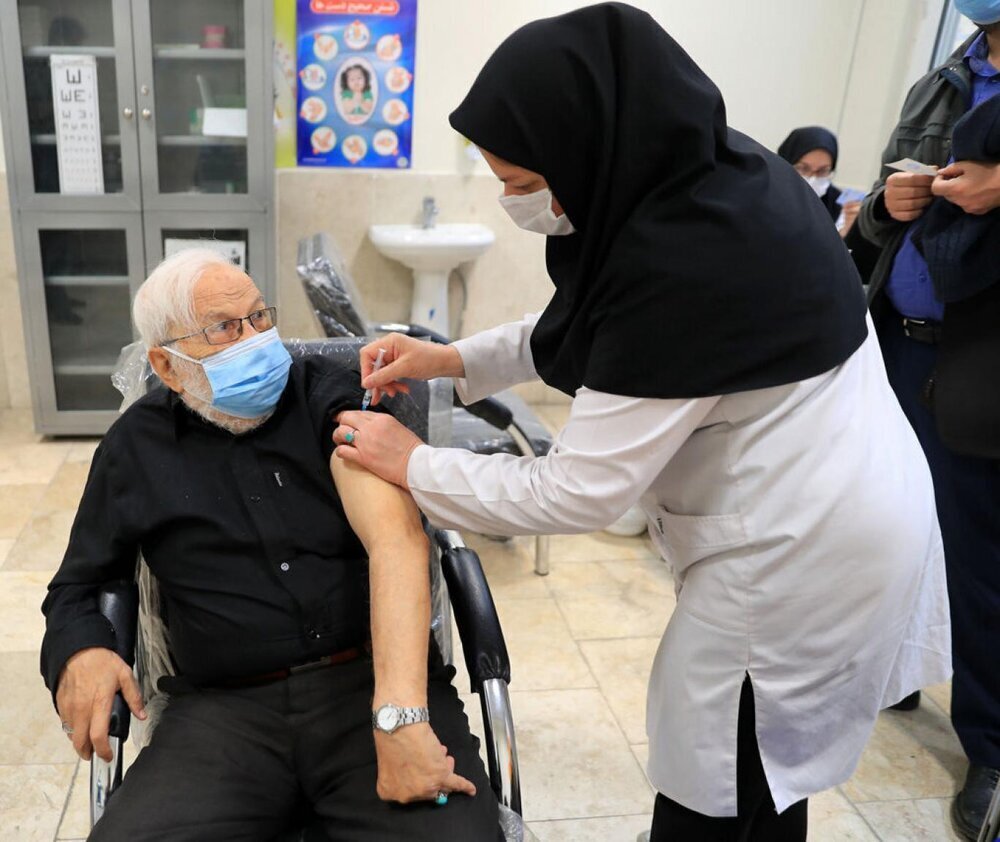UNHCR reports on COVID-19 response in Iran

TEHRAN - The United Nations High Commissioner for Refugees has published a report on the situation of coronavirus in Iran by the month of September and measures which have been taken to deal with the disease under the support of the UN agency.
The report, released on November 9, says while Iran had registered over 5.5 million cases and more than 120,000 deaths in September, by the end of the month it was generally agreed that the country had overcome the fifth wave of the pandemic.
As of the end of September, over half of Iran’s population had received the first dose of the COVID-19 vaccine, of which some 500,000 were Afghan nationals (refugees and undocumented individuals). High school students became eligible to receive vaccines, with hopes for the reopening of schools.
Working closely with the Bureau for Aliens and Foreign Immigrant’s Affairs (BAFIA), UNHCR continued to provide emergency support to the Government of Iran’s COVID-19 response.
UNHCR and the Government of Iran continued to provide essential medicines and personal protective equipment to help bolster Iran’s health system. As part of the government’s inclusive policy, refugees and foreign nationals were being included in the COVID-19 National Deployment and Vaccination Plan (NDVP), albeit with some delays given procurement and economic issues.
UNHCR, in collaboration with the UN country team (UNCT), supported the government application for the supply of vaccines for 20% of persons of concern through the COVAX Humanitarian Buffer, for which Iran received approval on 28 September. As such, 1.6 million doses will be shipped in the coming weeks.
In 2021, in order to mitigate the negative impact of COVID-19 and reduce the risk of refugees adopting negative coping mechanisms, between July to September, UNHCR offices in the field in co-operation with BAFIA have identified and assisted with cash assistance 3,388 individuals at risk or in need, who have been affected by the pandemic.
Refugees continued to have access to free COVID-19 testing in designated Ministry of Health affiliated centers. If refugees are enrolled in the Universal Public Health Insurance (UPHI), they also continue to have access to subsidized treatment and hospitalization and only pay the franchise fee of 10%.
However, UNHCR continued to receive reports of uninsured refugees facing challenges in affording COVID-19 treatment costs. By mid-September 2021, 94,632 refugees had enrolled in the UPHI, out of which 83,672 (70% out of 120,000) were vulnerable and special disease cases for which UNHCR pays the fee (and thus enrolled in the scheme free of charge).
UNHCR and BAFIA continued efforts to communicate with communities to share information on hygiene and health practices through refugee focal points, UNHCR-hired lawyers, psycho-social counselors, and other partners. Remote community engagement continued to take place via virtual focus group discussions, online awareness-raising sessions, and key informant interviews.
Meanwhile, given crowds in front of reception centers, in-person group counseling also took place to address rumors and misinformation regarding Resettlement and other relocation schemes for Afghans.
UNHCR strengthened its hotline capacity at the start of the pandemic so that refugees could continue to access protection services such as counseling, referrals, or inclusion into relevant programs. This capacity was further bolstered in late August 2021, in order to respond to the increase in approaches linked to new arrivals from Afghanistan.
In September 2021, 3,715 refugees approached UNHCR, with assistance being one of the main topics of concern for refugees. UNHCR renovated its refugee reception areas to make them COVID-19 compliant so that in-person reception activities can gradually resume. In the last weeks of September, approximately 80 persons were received at the reception in Tehran on a daily basis. Given that most of the approaches are still related to resettlement requests (both by new arrivals and the old caseload), group counseling was provided.
MG
Leave a Comment